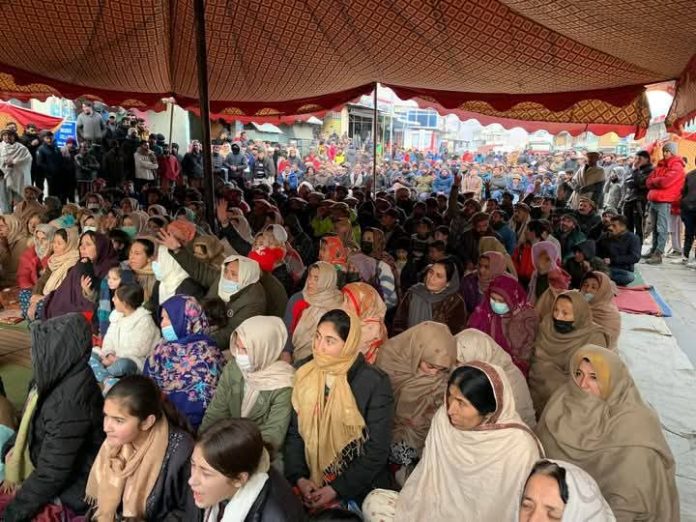Pakistan’s critical trade route with China, the Karakoram Highway, has remained blocked for five consecutive days as massive protests erupt in Hunza, Pakistan-occupied Gilgit-Baltistan (PoGB). Thousands of residents have taken to the streets, braving sub-zero temperatures, to demand an end to prolonged power outages that have left the region in darkness for up to 23 hours a day during the harsh winter.
The protest, which has drawn significant participation from women, political representatives, and local business associations, reflects the growing resentment against Islamabad’s neglect of the region. The demonstrators have vowed to continue their sit-in until their demands are addressed, paralyzing trade along the vital route connecting Pakistan and China.
The crisis highlights the exploitative policies of the Pakistan Army and establishment in PoGB, a region treated as a colony rather than an integral part of the country. Despite being home to critical trade routes and serving as a gateway for the China-Pakistan Economic Corridor (CPEC), the residents of PoGB continue to endure abject neglect.
The Pakistan Army, which exercises de facto control over the region, has prioritized its own profits from CPEC while ignoring the basic needs of the local population. The promises of development made under CPEC have turned out to be hollow, as infrastructure projects benefit Chinese and Punjabi Pak Army elites while locals are left with crumbling power systems, environmental degradation, and an eroding quality of life.
Hunza Uprising
Protesters have accused the occupying authorities of failing to provide adequate electricity, even as temperatures plunge to -10°C at night. The reliance on hydropower, which becomes almost non-functional during winter when rivers freeze, has exacerbated the crisis. Residents are forced to rely on expensive thermal generators, further straining household incomes in an already impoverished region.
The sit-in has also brought attention to the environmental damage caused by the increased use of generators, particularly by hotels and commercial entities, which adds to the worsening air quality in the pristine mountainous region.
Local authorities have made feeble attempts to negotiate with the protesters, but they have been unable to provide concrete solutions or restore traffic along the Karakoram Highway. Containers carrying goods between Pakistan and China remain stuck, disrupting trade and exposing the fragility of the so-called “all-weather friendship” between the two countries.
The protests in Hunza erupted barely a month after Pakistan and China announced plans to keep the Khunjerab Pass operational year-round to boost trade connectivity. The announcement, however, has done little to address the grievances of the people in PoGB, who see CPEC as a project designed to exploit their resources while offering no tangible benefits to the local population.
The region’s strategic importance to Pakistan is undeniable, yet its people are treated as second-class citizens. The Pakistan Army, notorious for its colonial mindset, has used PoGB as a revenue-generating outpost, while its residents are left to suffer power shortages, poverty, and environmental degradation.

